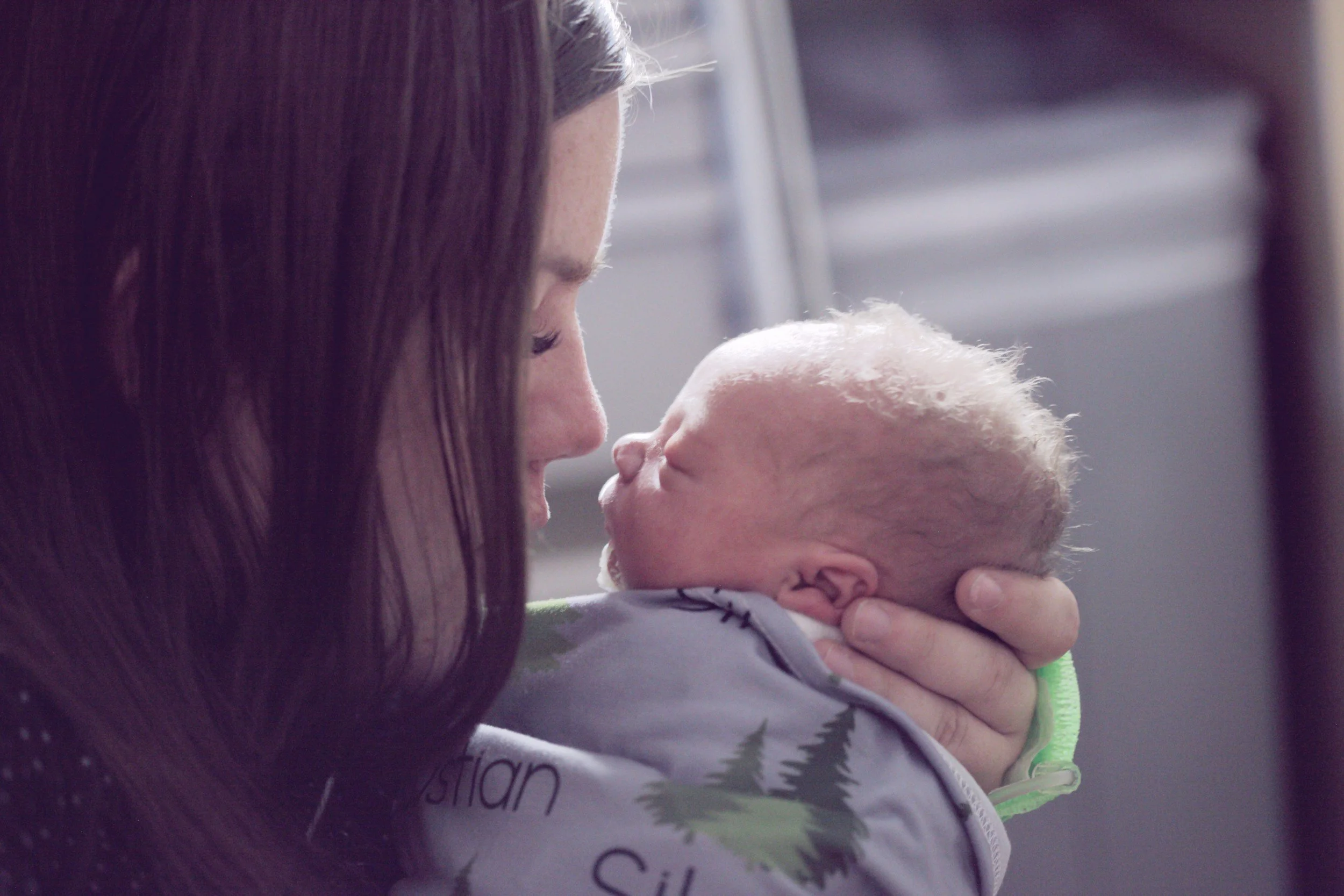Postpartum Anxiety vs. Baby Blues: When to Seek Postpartum Therapy Palm Beach Gardens
The arrival of a new baby is often described as the pinnacle of joy—a life transition marked by unconditional love, celebration, and new beginnings. For residents of Palm Beach Gardens, where high expectations and demanding lifestyles are often the norm, this period is frequently accompanied by immense pressure to ‘bounce back’ quickly and manage the transition flawlessly. Yet, beneath the surface of beautiful nurseries and social media announcements, many new parents experience a profound emotional shift known as the “baby blues,” or, more seriously, Postpartum Anxiety (PPA) or Depression (PPD).
Understanding the difference between the transient, hormonal shifts of the ‘baby blues’ and the persistent, debilitating symptoms of a perinatal mood and anxiety disorder (PMAD) is crucial for mental wellness. This knowledge is the first step toward seeking specialized postpartum therapy that Palm Beach Gardens residents can trust. At Nurture Health, we recognize that prioritizing mental health is not a luxury—it is a necessity, especially during the demanding fourth trimester.
This comprehensive guide will help you distinguish between normal adjustment and clinical concern, empowering you to identify when it’s time to seek professional, compassionate support.
Setting the Foundation: Understanding the Postpartum Period and the ‘Baby Blues’
The postpartum period, often referred to as the fourth trimester, is a time of intense physiological and psychological upheaval. Hormones plummet, sleep deprivation becomes chronic, and identity shifts dramatically. It is entirely normal for new parents (mothers, fathers, and partners) to experience a range of conflicting emotions.
The Transient Nature of the ‘Baby Blues’
The ‘baby blues’ are extremely common, affecting up to 80% of new mothers. They are characterized by mild, fluctuating mood changes that typically begin within the first few days after delivery and usually resolve spontaneously within two weeks.
Key Characteristics of the Baby Blues:Emotional Volatility: Sudden bouts of crying, sadness, and irritability, often without a clear trigger.
Mild Anxiety: Feeling slightly overwhelmed or worried about the baby’s care.
Short Duration: Symptoms peak around days 3–5 and almost always disappear by the 14-day mark.
Functionality Maintained: While uncomfortable, the individual can still function, care for the baby, and find moments of joy and connection.
The ‘baby blues’ are primarily linked to the dramatic drop in estrogen and progesterone following childbirth, coupled with severe lack of sleep. They are a temporary adjustment period, not a mental health diagnosis. However, if these symptoms persist past the two-week threshold, or if they intensify to the point of interfering with daily life, it is a significant warning sign that professional support is needed.
For those struggling with the emotional demands of this period, addressing general emotional regulation and coping skills can be beneficial. [LINK: Anxiety Therapy]
Beyond the Blues: Recognizing the Signs of Postpartum Anxiety (PPA)
While Postpartum Depression (PPD) often receives more attention, Postpartum Anxiety (PPA) is equally prevalent and can be just as debilitating. PPA is not simply mild worry; it is a persistent, overwhelming sense of dread, fear, and intrusive thoughts that severely impact daily functioning and the ability to enjoy the new parent role.
PPA can manifest immediately after birth or gradually emerge over the first year. Unlike the sadness often associated with PPD, PPA is defined by intense, unmanageable fear.
The Core Symptoms of Postpartum Anxiety
If you are experiencing any of the following symptoms consistently for longer than two weeks, or if they are escalating, it is vital to seek specialized postpartum therapy.
Excessive and Uncontrollable WorryThis is the hallmark of PPA. The worry is often focused specifically on the baby’s health, safety, and well-being. This goes beyond normal parental concern; it becomes consuming and irrational. Examples include:
Constantly checking the baby’s breathing, even when they are sleeping soundly.
Fear of leaving the house due to potential risks (germs, accidents).
Obsessive research into rare illnesses or developmental delays.
Inability to delegate care, stemming from the fear that no one else can keep the baby safe.
Intrusive, Racing ThoughtsIntrusive thoughts are sudden, unwanted, and often horrific mental images or impulses related to harm coming to the baby or self. These thoughts are highly distressing, ego-dystonic (meaning they go against the person's true desires), and are a classic symptom of anxiety and Postpartum Obsessive-Compulsive Disorder (POCD), which often co-occurs with PPA.
It is crucial to understand that having these thoughts does not mean you are dangerous or a bad parent. They are symptoms of a highly anxious brain and are rarely acted upon. However, they cause intense shame, fear, and isolation.
Physical Manifestations and Panic AttacksPPA often presents with severe physical symptoms mirroring a constant state of fight-or-flight:
Chronic muscle tension, especially in the neck and shoulders.
Gastrointestinal distress (stomach aches, nausea).
Inability to relax or sit still (restlessness).
Severe insomnia, even when the baby is sleeping.
Panic attacks: Sudden episodes marked by a racing heart, shortness of breath, dizziness, dread, and a feeling of losing control or impending doom.
The Unique Pressure on Palm Beach Gardens Parents
In high-achieving communities like Palm Beach Gardens, parents often face societal and self-imposed pressure for perfection. This pressure can exacerbate PPA. The drive to maintain a flawless appearance—perfect career, perfect home, perfect baby—can mask internal struggles, making it harder to admit vulnerability and seek help.
Studies consistently show that high levels of stress, lack of adequate support, and pre-existing tendencies toward perfectionism significantly increase the risk of PMADs. [SOURCE: Journal of Clinical Psychiatry Study on Perinatal Mental Health]. For the parent who is accustomed to solving problems quickly and efficiently, accepting that their mental health requires professional intervention can be challenging, yet it is the most crucial step toward recovery.
Your Path to Support: Why Specialized Postpartum Therapy in Palm Beach Gardens Matters
If your symptoms have lasted longer than two weeks, are intensifying, or are preventing you from enjoying your life or bonding with your baby, it is time to seek professional evaluation. You do not have to wait until you are in crisis.
Specialized Care for Perinatal Mood and Anxiety Disorders (PMADs)
Recovering from PPA requires more than general counseling; it requires specialized care from therapists trained in perinatal mental health. At Nurture Health, our clinicians are experts in evidence-based modalities tailored specifically for new parents:
Cognitive Behavioral Therapy (CBT) and Exposure TherapyCBT helps new parents identify and challenge the catastrophic thinking patterns and cognitive distortions that fuel PPA. For intrusive thoughts and obsessive checking behaviors (POCD), a specific form of CBT called Exposure and Response Prevention (ERP) is highly effective. ERP helps individuals gradually face their fears and resist compulsive behaviors, retraining the brain to reduce anxiety responses.
Mindfulness and Stress Reduction TechniquesLearning practical, moment-to-moment coping skills is essential for managing the physical symptoms of anxiety. We help parents incorporate realistic mindfulness practices that fit within the chaotic schedule of new parenthood, focusing on grounding techniques and self-compassion.
Partner and Family InvolvementPPA affects the entire family unit. Our approach often includes working with partners to educate them on the disorder, improve communication, and establish realistic support systems. Addressing the shift in relationship dynamics during this transition is critical for long-term family wellness. [LINK: Life Stages and Transitions]
Taking the Step: Finding Compassionate Postpartum Therapy in Palm Beach Gardens
Seeking help is a sign of strength, responsibility, and commitment to your family's well-being. For those in the Palm Beach Gardens area, finding a practice that understands the unique pressures of this community and offers flexible, confidential, and expert care is paramount.
We provide a safe, non-judgmental space where you can unpack the fears, shame, and exhaustion that PPA brings. Our goal is to stabilize your emotional health, restore your confidence, and help you connect with the joy of parenting without the constant interference of anxiety.
Conclusion: Prioritizing Your Mental Health Now
Whether you are grappling with overwhelming worry, debilitating panic attacks, or simply cannot shake the feeling that something is terribly wrong, please know that you are not alone, and this is treatable. The ‘baby blues’ fade, but Postpartum Anxiety requires professional intervention.
If you or your partner suspect PPA or PPD, the time to seek help is now. Nurture Health offers specialized postpartum therapy that Palm Beach Gardens residents rely on for compassionate, evidence-based care. Contact us today for a confidential consultation and take the first step toward reclaiming peace in your parenting journey. Your well-being is the foundation of your family’s health.



